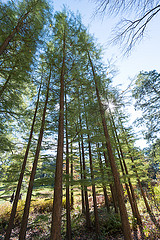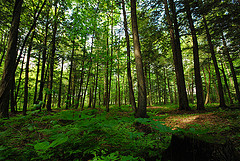Skip to a section:
- Costs – Is it time for you to do tree maintenance as a Birmingham resident? See what the costs are for tree care, removal or stump removal before you call so you’re prepared.
- FAQs – The city of Birmingham is a warm and lush climate that supports certain kinds of trees. Find out more about what trees will thrive, which might not, and what pests to watch out for.
- Services – Local professionals in the area know more about what your tree needs to stay healthy. Call one today!
How Much Do Tree Services Cost in Birmingham?
Birmingham may be the largest city in Alabama, but it still boasts a beautiful and lush landscape made possible by the moderate Southern climate. Homeowners often choose to include trees on their properties for curb appeal and shade, but maintaining them isn’t always easy. Use these cost guidelines to plan for professional tree trimming, tree removal and stump removal in Birmingham, Alabama.

How Much Does Tree Removal Cost in Birmingham?
While trees can be a beautiful addition to your property, they can also pose risks. A dead tree may threaten your roof or become a safety risk, and in some cases they simply need to be removed for landscaping improvements. Either way, it is safest to hire professionals to carefully bring down the tree, chop it and then remove it from your home. Expect to pay anywhere from $770 to $1,082 to have this done in Birmingham.
How Much Does Stump Removal Cost?
Removing a stump may seem easier than removing an entire tree, but it is still not an easy job for an amateur gardener. Professionals use a large stump grinder that eliminates the stump in minutes and creates a more attractive look, but this will cost more. On average, homeowners in Birmingham pay between $82 and $140 for professional stump removal.
Tree Maintenance Costs in Birmingham
In order for trees to receive the nutrients they need to thrive and remain lush and green, tree trimming may be necessary. This allows the interior of the tree to receive sunlight, and it also prevents new branches from stealing nutrients and water. Pruning, too, is an effective tool when growing fruit trees. Whether pruning or trimming trees in Birmingham, the cost ranges from $445 to $621, but that price might change depending on the number of trees on your property.
Birmingham Tree Facts & FAQs
In order for trees to receive the nutrients they need to thrive and remain lush and green, tree trimming may be necessary. This allows the interior of the tree to receive sunlight, and it also prevents new branches from stealing nutrients and water. Pruning, too, is an effective tool when growing fruit trees. Whether pruning or trimming trees in Birmingham, the cost ranges from $445 to $621, but that price might change depending on the number of trees on your property.
Thriving Trees in Birmingham
With a climate that rarely dips below the point of freezing, Birmingham is a wonderful destination for fruit tree growers. While there are plenty of options to consider on your property, some of the best choices include persimmons, peaches, black cherries, pears, apples and plums.
The longleaf pine, scientifically known as Pinus palustris, is the official state tree in Alabama. Two centuries ago, it is believed that more than 90 percent of Alabama’s land was covered in these pines, and in 1949 the species was designated as the state tree. Longleaf pines can be found in abundance throughout Birmingham and out in the surrounding countryside.
The champion tree program is a list maintained by the Alabama Forestry Commission that recognizes many of the tallest and widest trees in the state according to species. In Shelby County, just minutes from Birmingham, is a stunning 84-foot willow oak that is the tallest of its species in the entire state. Common short trees in the area include dwarf fruit trees and ornamental trees used in gardens with a limited amount of space.
Rules Concerning Trees
The edge of your property may serve as an easement for Alabama Power, the major electricity provider in the Birmingham area. This means that they maintain and regulate the types of trees and shrubs grown in these spaces. Generally, homeowners are advised not to plant trees that grow higher than 15 feet underneath overhead power lines, and you should also expect tree trimming and even shrub removal along easements if they impede access for Alabama Power.
In Birmingham, there are no required permits for homeowners to remove trees on their own property. The only time permission is needed is when trees are partially on public land, or if there is a dispute about tree removal between two neighbors. Keep in mind that professionals who cut down your tree should remove it, because the Birmingham Department of Public Works will not haul away tree debris as household garbage. Generally, the best time of year to remove trees in Birmingham is the winter, because doing so won’t disrupt your summer lawn.
Tree-Growing Concerns in Birmingham
When deciding if a non-native tree will be able to thrive in Birmingham, the best thing to look at is the tree’s suggested climate. The United States Department of Agriculture offers a map of hardiness zones to make the process easier. Birmingham is a 7b zone, which means that trees rates between 5a and 8b are the best best. Anything lower than 4b or higher than 9a is not recommended.
In every environment, there are a handful of diseases and insects that can threaten the appearance, bark and even lives of trees. According to the Alabama Forestry Commission, there are three major threats to trees within the state. These are thousand cankers disease, the emerald ash borer and laurel wilt disease.
Native Trees
 The most common trees in Birmingham are the native trees, much like the state tree, that have long grown in the area. The following trees are popular in the region and thrive well naturally in the climate.
The most common trees in Birmingham are the native trees, much like the state tree, that have long grown in the area. The following trees are popular in the region and thrive well naturally in the climate.
- Swamp white oak (Quercus bicolor)
- China fir (Cunninghamia)
- Pond cypress (Taxadium ascendens)
- Eastern hemlock (Tsuga canadensis)
Plant Hardiness Zones in Alabama
Here are the plant hardiness zones for Alabama, as provided by the USDA:

Image Sources:
Pond cypress
Eastern hemlock
Local Tree Services in Birmingham
